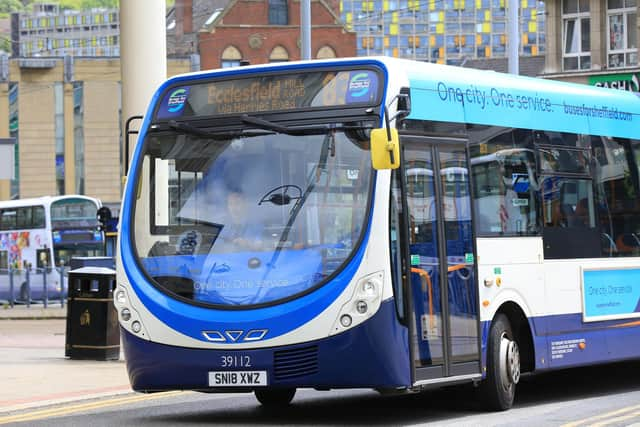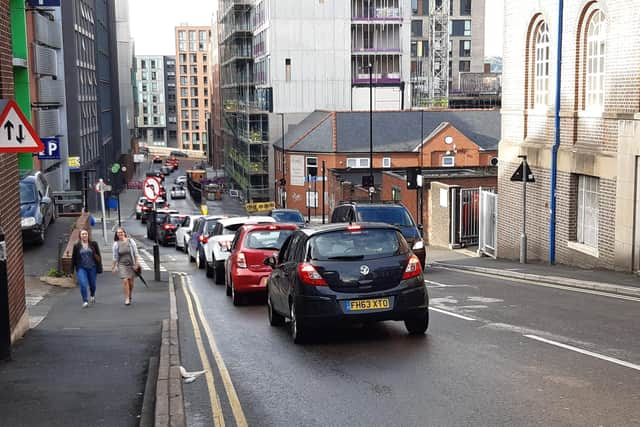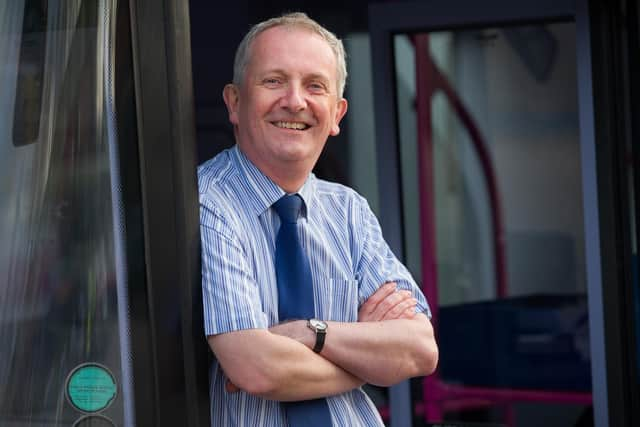Home workers create new peak on buses in Sheffield - but congestion is hitting new highs
and live on Freeview channel 276
Bus operators believe the new peak is due to work-from-homers meeting up after a morning on their own.
Nigel Eggleton, managing director of First Sheffield said buses were noticeably busier in the middle of the day.


Advertisement
Hide AdAdvertisement
Hide AdThe afternoon and evening peaks were about back to normal as children left school and people left the city centre, he added.
But overall, ticket sales were up to 30 per cent down.
New post-pandemic travel patterns have also seen morning road congestion above previous levels and for longer.
At 8am on Monday September 20, congestion was 59 per cent, compared to 33 per cent last year and 51 per cent in 2019.


At 9am the city was still 59 per cent congested, compared to 29 per cent in 2019. The figures are from TomTom International BV. It says congestion is how much longer - as a percentage - a trip would take compared to uncongested, free-flow travel times.
Advertisement
Hide AdAdvertisement
Hide AdMeanwhile, the number of people taking train trips is 60 per cent of normal, according to the Rail Delivery Group.
The shift to cars is believed to be due to fewer and less planned trips into work and a lingering reluctance to use public transport due to health concerns.


Mr Eggleton said: “It’s a challenge, we are learning about changes every day. It’s quite exciting in some ways. But it is a concern of course if city centres decline further. But we don’t want to be premature.”
The firm is waiting to see what happens when universities fully restart in October. Sheffield has 60,000 students.
Advertisement
Hide AdAdvertisement
Hide AdGovernment has spent millions covering UK bus firms’ loses throughout the crisis. But from this month, until March, they can only access a fixed pot of £223m. And they are not allowed to increase prices above the Consumer Price Index, the most widely used measure of inflation, currently running at three per cent.
Phil Medlicott, managing director for Stagecoach Yorkshire, called for more bus priority measures to lure people out of ‘polluting’ cars.
He added: “Greater focus on bus priority measures, making them faster and more reliable, help to make the bus an attractive alternative to polluting car trips.”
Local journalism holds the powerful to account and gives people a voice. Please take out a digital subscription or buy a paper.
Thank you. Nancy Fielder, editor.
Comment Guidelines
National World encourages reader discussion on our stories. User feedback, insights and back-and-forth exchanges add a rich layer of context to reporting. Please review our Community Guidelines before commenting.
